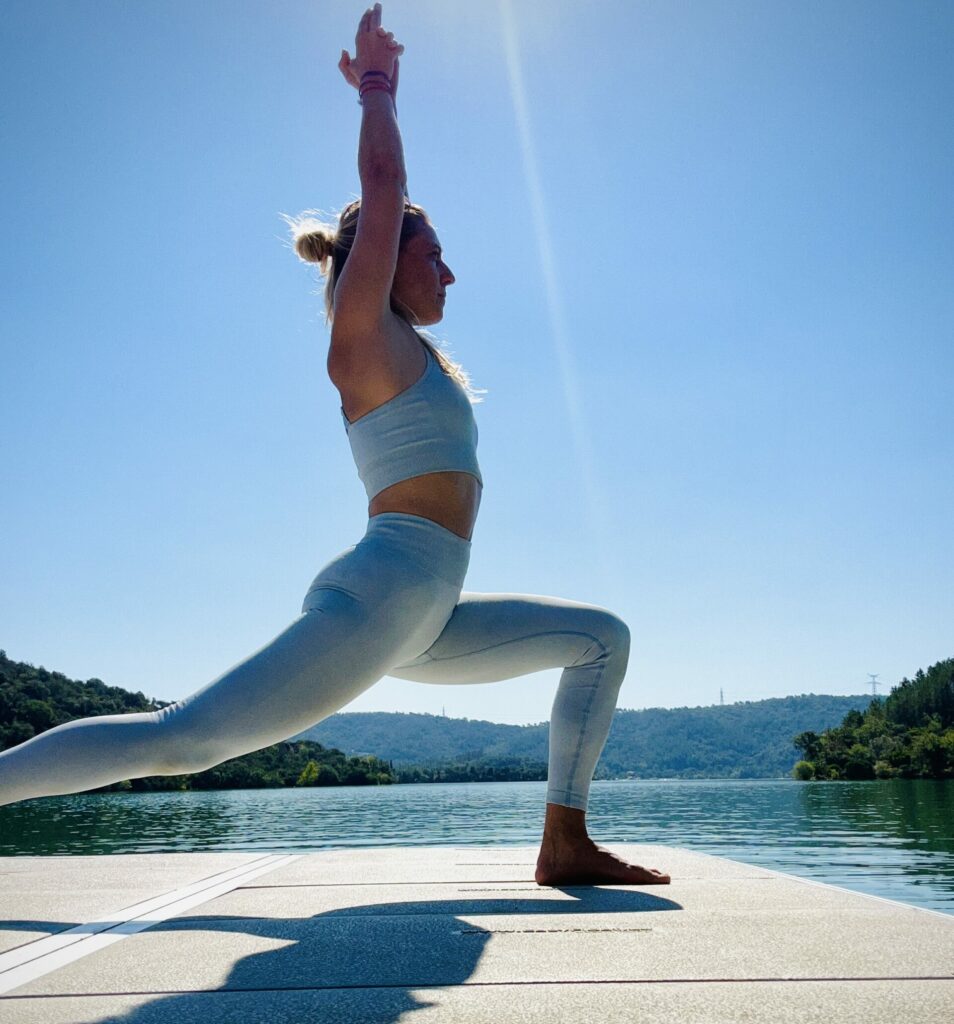The Benefits of Practicing Yoga to Optimize an Athlete’s Performance
Yoga, an ancient discipline originating from India, is increasingly recognized not only for its benefits on general well-being but also for its potential to enhance athletes’ performance in various sports. This article explores the multiple advantages of yoga for athletes and explains how this practice can be integrated into a training program to optimize athletic performance.
Improvement of Flexibility and Mobility
Flexibility is a crucial aspect for many sports. Yoga, with its varied postures, allows for the stretching and strengthening of muscles, tendons, and ligaments. Sports like gymnastics, ballet, football, and even rugby require significant flexibility for optimal performance and to minimize the risk of injuries.
By incorporating yoga sessions into their routine, athletes can improve their range of motion. For example, poses like “Downward-Facing Dog” or “Warrior” help stretch the hamstrings and hips, areas often tight in athletes. Better flexibility also contributes to better technique, allowing for more fluid and efficient movements.
Strengthening of Muscular Strength
Contrary to what one might think, yoga is not just about flexibility. Many poses require significant muscular strength. Yoga poses such as the “Plank” or “Crow Pose” intensely engage the core, arms, and legs.
The muscular strengthening obtained through yoga is often functional, meaning it helps stabilize the body and prevent injuries. Athletes can thus benefit from better balance and coordination, two essential elements for optimal performance in most sports.
Enhancement of Balance and Coordination
Balance and coordination are crucial skills in almost all sports. Yoga, by training balance poses like the “Tree Pose” or the “Eagle Pose,” helps develop these abilities. Better balance allows athletes to maintain difficult positions and react quickly to changes in direction or pace during competition.
Reduction of Stress and Improvement of Concentration
Recovery is a crucial aspect of sports training. Yoga, through its stretching and relaxation exercises, promotes better blood circulation and helps eliminate toxins from the muscles. This can speed up the recovery process and reduce muscle soreness after intensive training sessions.
Moreover, yoga helps balance the body by correcting muscular imbalances. These imbalances are often the cause of recurring injuries in athletes. By strengthening stabilizing muscles and improving flexibility, yoga helps reduce the risk of injuries related to overuse or incorrect movements.
Improvement of Breathing and Endurance
Breathing is a fundamental element of athletic performance. Yoga teaches breathing techniques that increase lung capacity and improve respiratory efficiency. Better breathing leads to better oxygenation of the muscles, which can enhance endurance and overall performance.
Deep breathing techniques, like those practiced in yoga, also help calm the nervous system, thereby reducing stress and anxiety. For athletes, this translates to better effort management and the ability to maintain high performance over longer periods.
Yoga is an introspective practice that encourages self-awareness and Discipline.
Yoga is an introspective practice that encourages self-awareness. Athletes who practice yoga learn to better understand their bodies and their limits. This increased awareness allows for training adjustments based on individual needs, thereby avoiding overload and injuries.
Furthermore, yoga teaches discipline and patience. Progress in yoga is often slow and requires regular and determined practice. This discipline can be transferred to sports training, helping athletes remain engaged and motivated in the long term.
Integrating Yoga into a Training Program.
To effectively integrate yoga into a sports training program, it is essential to choose the appropriate yoga styles. For example, Hatha yoga, with its slow and held postures, is excellent for recovery and improving flexibility. Vinyasa yoga, more dynamic, can be used to work on strength and endurance.
It is also important to work with experienced yoga instructors who understand the specific needs of athletes. A personalized program can be developed to target areas of weakness and to integrate yoga sessions consistently with the rest of the training.
My yoga approach for athletes :
As a former athlete and holistic wellness professional, my approach is to identify the needs of athletes and address them through specific and fully adapted yoga sequences. Through exchanges with coaches and athletes, and considering their objectives, I will adjust exercises and create a tailored program. To make the session as accurate and optimized as possible, I draw from my knowledge of yoga, Pilates, sports massage, and other techniques.
By regularly and thoughtfully integrating yoga, athletes can optimize their performance, reduce the risk of injuries, and achieve a general state of well-being that fosters success in their sports discipline.
Work with me :
If you are interesting to work with me, you can contact me by phone on WhatsApp : +33 6 32 98 51 86 or by e-mail : contact@yuva-yoga-antibes.com
I am based in Antibes but I can work worldwide depend on the project.


